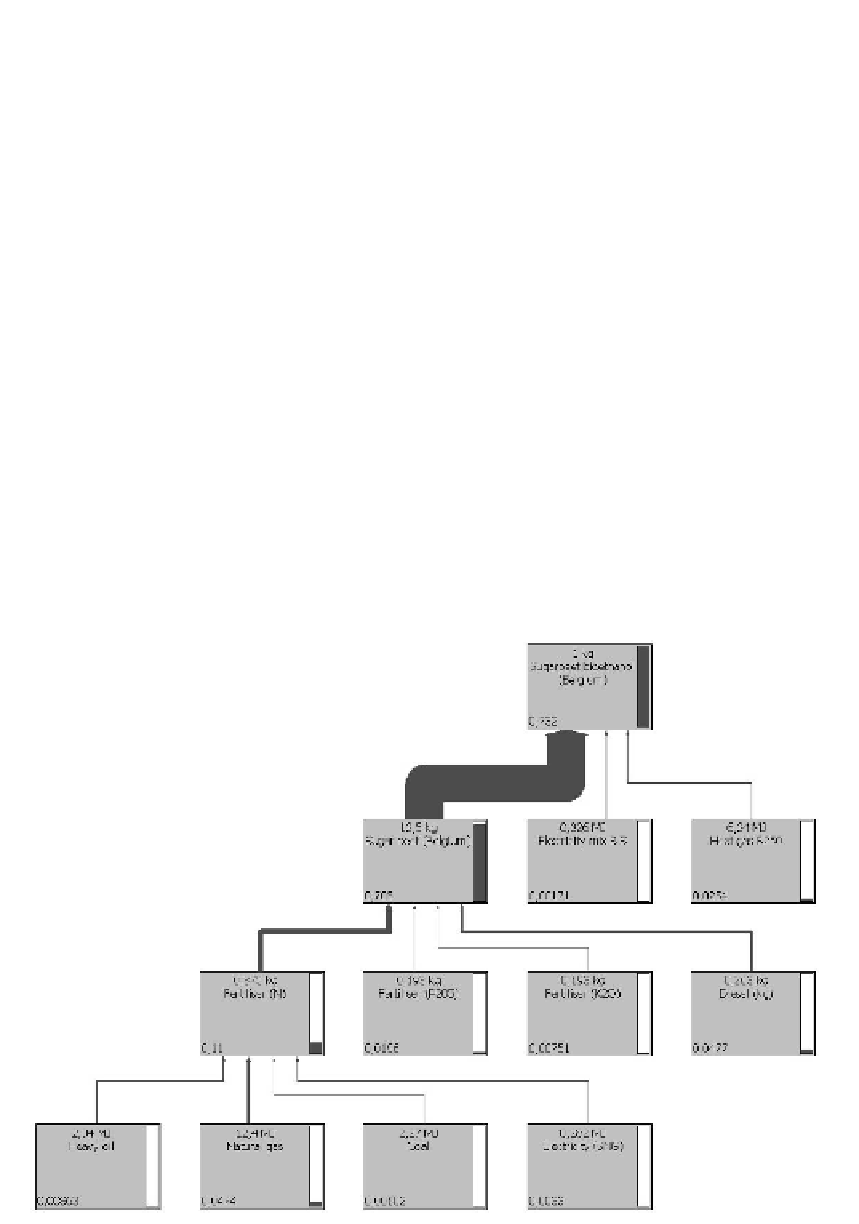Agriculture Reference
In-Depth Information
At first stage of the assessment data on bioethanol energy and inventories flow were
obtain from research [62, 89, 90]. For impacts assessment of liquid biofuels production on
different aspects of environment, software Sima Pro 7.1 and method Eco indicator 99 was
used. The software has been chosen because it is a widely used Life Cycle Assessment (LCA)
tool, both by professionals and researchers. Its main advantages are the several available
databases and the ability to produce and evaluate results, which can be translated into a
number of impact categories, such as acidification, climate change etc., and demonstrate the
environmental impacts. Results of sugar beet bioethanol LCA were compared to fossil diesel,
petrol and other sources of energy for road transport LCA since bioethanol is considered to be
substitute for fossil fuels. All fuels were compared per functional unit, which means
consumption of fuel per one hundred kilometres, since the efficiency of internal combustion
engine and electric motors are different.
Flowchart shows that production of ethanol from sugar beet in Belgium is the most
affected by production of feedstock, especially nitrogen fertilizer and fossil diesel are playing
important role (Figure 1).
Figure 2 show that production of ethanol from sugar beet is affecting health and
acidification/eutrophication. The most contributed inventories are feedstock cultivation and
natural gas.
In France as well as in most selected countries production of feedstock is a major
contributor to whole process of ethanol production. Other inventories are negligible can be
seen on Figure 3.
Figure 1. Flowchart of sugar beet`s bioethanol production in Belgium.

